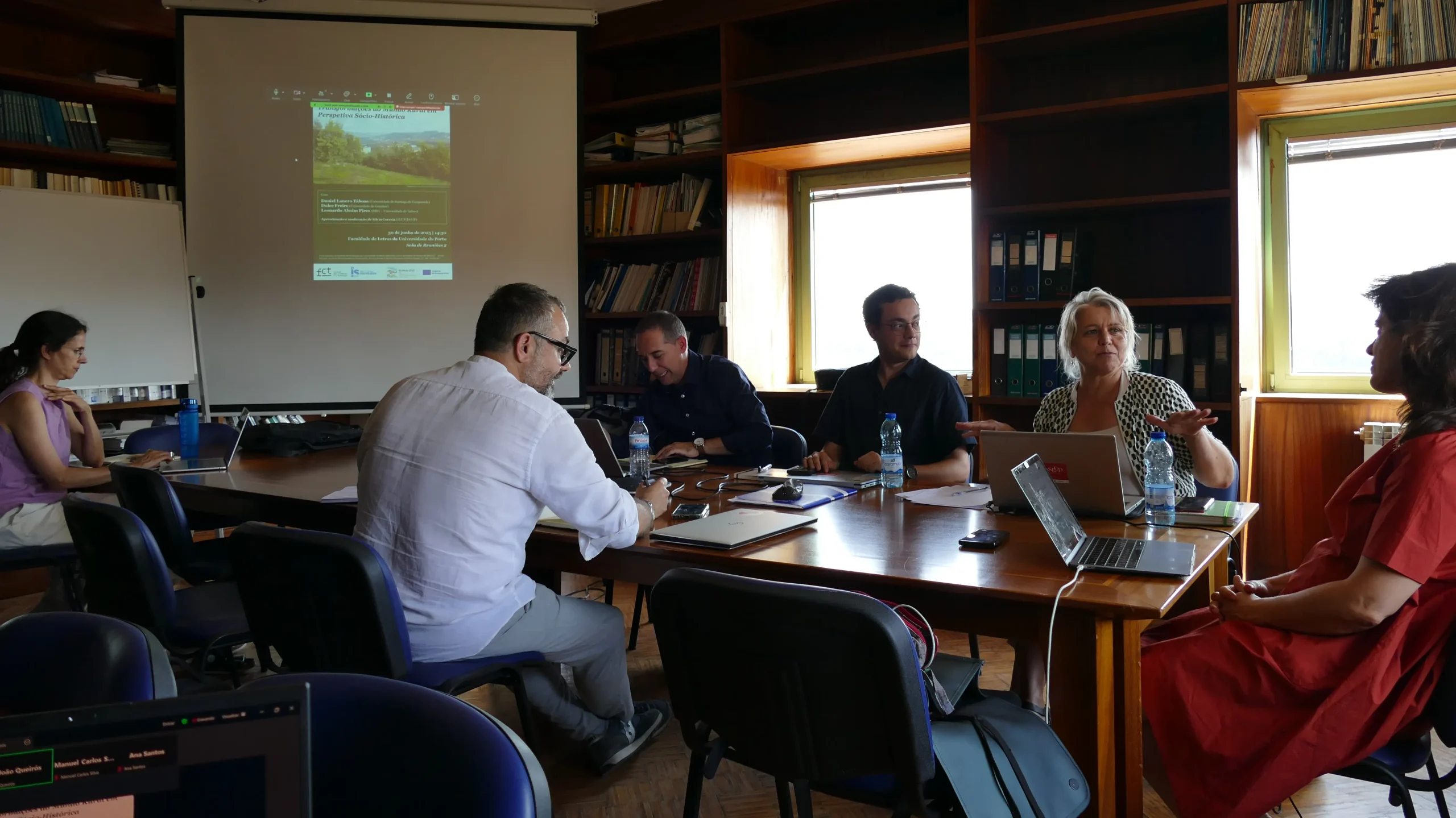Revisiting the historiography of rural Iberia: Insights from the RURALITIC workshop in Porto
Is our idea of the countryside shaped more by politics than by lived experience? This question lay at the heart of Transformations of the rural world from a socio-historical perspective, a workshop hosted on 30 June by RURALITIC in collaboration with the Social Recompositions and Territories Subgroup at the Institute of Sociology of the University of Porto (ISUP).
Historians and sociologists from the RURALITIC project met at the University of Porto to share knowledge and examine how rural Iberian societies have been represented in historiography, and how those views have changed over time. The 16 participants aimed to plant new seeds for a growing bibliography that will support the projects’ scientific publications.
Under the guidance of RURALITIC historian Sílvia Correia (ISUP), these participants traced the changing rural landscapes of the 19th and 20th centuries. With each historiographic presentation, a different layer of rural Iberia’s complex history unfolded, offering insights into how historians have constructed, revised and at times romanticised rural life.
Leonardo Aboim Pires (University of Lisbon) examined Portuguese representations of rural life from the late 19th century through to 1926. He highlighted the impact of French influences, particularly the works of Michel Chevalier and Saint-Simon. Referencing classic Portuguese works of agrarian and rural historiography, including Miriam Halpern Pereira, David Justino, and Pedro Lains, Pires examined the role of peasants in the rural economy and society. Without losing sight of the bucolic perspectives that romanticised peasant life, his analysis emphasised the routine nature, social isolation, and limited economic capacity that defined rural existence.

Following this overview, other participants focused on the political use of rural imagery under authoritarian regimes. Daniel Leandro Táboas (University of Santiago de Compostela) and Dulce Freire (University of Coimbra) shared how the Franco and Salazar dictatorships selectively idealised so-called “peasant virtues” such as simplicity, hard work and loyalty, portraying them as the essence of national identity. This essentialisation of rural life placed the rural interior at the symbolic hearts of both regimes’ nation-building projects.
Táboas further explored the history of these representations by establishing a comparative analytical framework between Spanish historiography and key figues of Anglo-Saxon historiography and cultural studies, particularly E. P. Thompson (Customs in Common) and Raymond Williams (The Country and the City). This approach highlighted transnational parallels in how rural imagery has been mobilised to serve ideological ends.
Freire, meanwhile, traced how scholars working during the Salazar dictatorship diagnosed Portugal’s rural “backwardness” while proposing state-led plans for “modernisation.” Her research mapped a three-phase chronology of political intervention in the countryside:
- In the 1930s and 1940s, interpretations based on a model of ‘spontaneous colonisation’
- From the 1950s to the 1960s, a socially and technically controlled management framework associated with the action of the Internal Colonisation ‘Junta’ [Board]
- In the mid-1970s, the emergence of an alternative ‘revolutionary’ framework centred on ‘agrarian reform’
By drawing connections between academic research and political strategy, the workshop shed light on how scholarly interpretations of the rural world have both reflected and shaped wider societal transformations. It also emphasised the ongoing significance of rural historiography in comprehending Iberia’s intricate socio-political evolution.
For updates on the workshop’s outcomes and related research, follow us on Bluesky and LinkedIn. All our scientific publications will be available in Zenodo!
